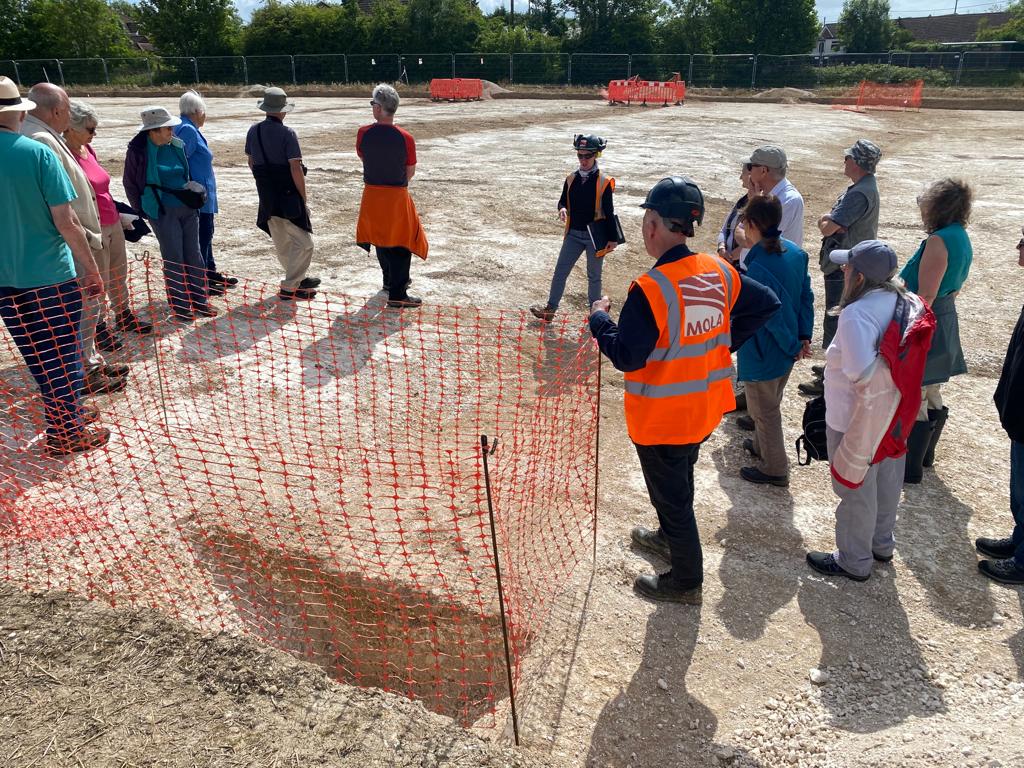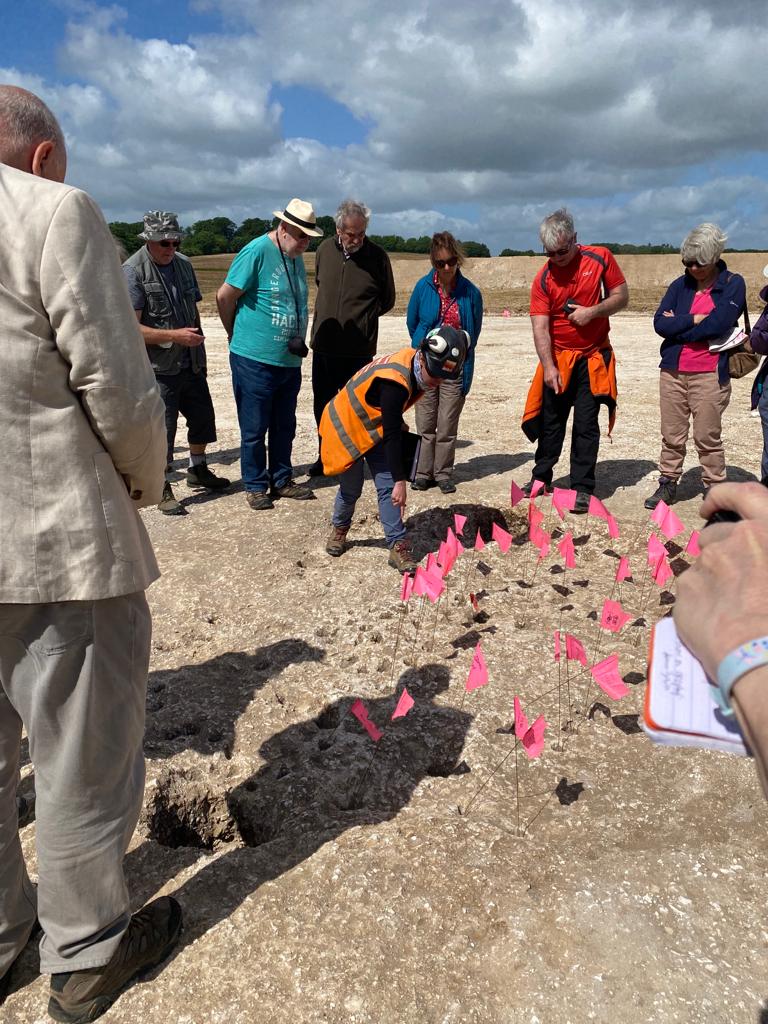Potential archaeologists of the future and local history enthusiasts have stepped back in time during visits to see the archaeological work taking place at Manydown.
Children from Year 4 at Chiltern Primary School were given the opportunity to see a live archaeological dig up close and also spent time learning about what is taking place on site, why archaeology work is an important part of development and what it can tell us about earlier residents of Manydown.

History was brought to life as the visitors were able to see and touch some of the artefacts found on site leading to questions about what it may have been like to live on Manydown in the past.
Archaeologists from the project had delivered a talk at the school before the visit, explaining what archaeology tells us about the way people lived, why it takes place on sites like Manydown before development work starts as well as what you need to do at school to become an archaeologist.
Members of the Basingstoke Archaeology and Historical Society (BAHS) have also visited the site recently. Sixteen society members had a tour around the work currently taking place and really enjoyed the opportunity.
“Our members were all wowed by the level of work taking place and what has been found, in particular by the new discoveries of Saxon features and artefacts. “The archaeological tour went really well, and we are most appreciative of the time taken out by the team to speak with us – we feel very privileged to have been able to visit during this narrow window of opportunity."
Ginny Pringle, BAHS Tweet

Rebecca Smith Communications, Communities & Partnership Manager for Urban&Civic, said: “It was great to be able to share what we are doing on site with Chiltern Primary School and the members of the BAHS. These interesting insights into the earliest chapters in Manydown’s story give us some answers about earlier residents and how they might have lived.”
The Manydown Partnership is working with Museum of London Archaeology (MOLA) again on this latest phase of archaeological surveys, which has offices in Basingstoke and are familiar with both the site and local area.

